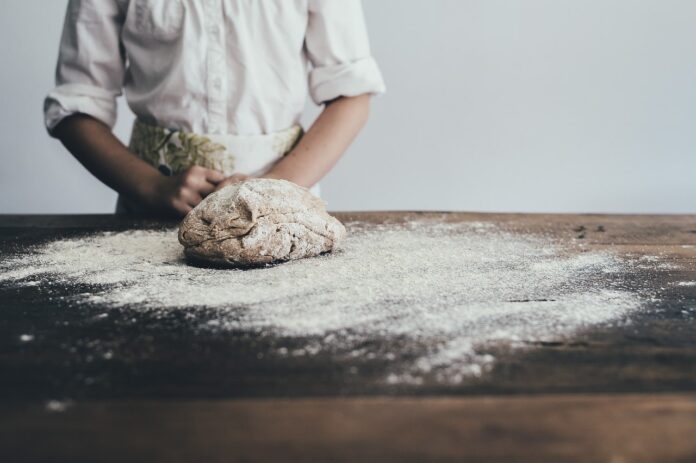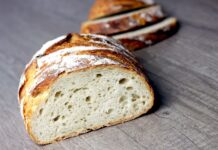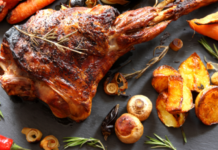Baking is a popular pastime around the world, allowing people of all abilities to put their creativity to the test in a bid to make delicious eats to savour for every occasion.
And the COVID-19 pandemic, in particular, had a lasting impact on the culinary hobby, with more than half of Brits admitting to baking more post-lockdown according to a survey.
The same research highlighted that 71% of respondents baked more than once a week when compared to only 31% pre-lockdown – a significant increase.
In fact, research even shows that Brits are taking baking further than just a hobby, with the number of home-baking businesses in the UK increasing by 230% between 2019 and 2021.
So, ahead of World Baking Day on May 17th, Virtual College by Netex has highlighted the biggest mistakes that many are likely making in the kitchen whilst baking – ones that may even be putting your health at risk!
The specialist online training provider offers courses in food hygiene and safety should any budding amateur or professional bakers be looking to further their knowledge.
Having A Dirty Oven
Whilst cleaning our ovens may often get knocked down on our ever-growing list of daily priorities, you may want to consider sprucing yours up before you next bake up a storm.
Virtual College highlights that grease and grime are naturally built up in ovens from regular cooking and baking, but it’s possible that enough of a build-up can lead to a production of harmful gases, including the likes of carbon monoxide, known as the “silent killer”.
Equally, having a coating of muck on the inside of your appliance can lead to uneven distribution of heat, and may also mean you’re having to open your oven door more to check if your food is cooked yet. This can mean your food isn’t cooked enough, or evenly, which may lead to food poisoning.
Particularly when cooking baked products that have ingredients which are prone to harmful bacteria, such as Salmonella in eggs or E.coli in flour, this can lead to an inedible baked good and an avoidable upset stomach for you or your family and friends.
Wearing Nail Varnish
Whilst you may think that your nail varnish isn’t going to budge the next time you decide to get your hands dirty in the kitchen, you may want to think twice about how your fingers may end up contaminating your sweet treats, and we’re not just talking about germs.
Nail varnishes are known to contain a cocktail of chemicals, and some include three substances that are dubbed to be much worse than the rest. Nicknamed the ‘Toxic Trio’, these chemicals include toluene, formaldehyde, and dibutyl phthalate (DBP), all of which, when consumed in larger amounts, can cause negative physical symptoms, including vomiting and even inflammation of the stomach.
Whilst consuming small traces of chipped nail polish that may make its way into your batters or doughs may not cause you any harm, consuming these nasty chemicals is easily avoidable and will stop these harmful substances from being ingested when they shouldn’t.
So, next time you get a fresh manicure and you fancy making yourself something sweet, wearing a pair of cooking-suitable gloves is recommended by the online training provider.
Be Aware Of Your Clothing
Whilst it’s more than important to ensure that where you’ll be preparing your next treat is clean and kept, it’s not just the germs on your surfaces that could contaminate your baked goods.
Germs on clothes are unavoidable and are transferred from our skin or are picked up during our daily routines. Most of the microbes found on our clothing are harmless, but they could pose risk of infection or illness.
On average, wearing clothes can shed nearly 40 million microorganisms in an hour. Even if you’ve simply run an errand or two, it’s possible that you may have picked up a nasty bacteria, which could be shed onto your ingredients when preparing your food.
Therefore, wearing appropriate clothing, such as a freshly washed apron, can reduce the risk of contamination significantly and keep your delicious items germ free.
Using Tea Towels
Tea towels are a kitchen essential that you’ll often find hung on the cabinets of kitchens around the world. And whilst they’re convenient for drying dishes and cleaning up spillages, what many fail to realise is the extent to which these can be a breeding ground for harmful bacteria.
A study conducted in 2018 found that nearly 50% of multi-use tea towels were found to have bacterial growth, including E.coli and Staphylococcus Aureus, which can even cause bloodstream infections and pneumonia.
Even after a few uses, these handy items could pick up numerous harmful bacteria from your kitchen environment. So, whilst it may be tempting to reach for that conveniently hung tea towel the next time you want to mop up a spill, you may want to opt for an alternative, such as a piece of kitchen roll.
Consuming Raw Batter – But Not Because Of The Eggs
Whilst many baking lovers are more than aware that they shouldn’t sample their goods before they’re baked, or risk contracting the Salmonella virus from eggs, in fact, there’s another ingredient that they should be more conscious of.
Salmonella is much less frequently found in eggs today, but flour is an ingredient that can be a much larger culprit for harbouring nasty bacteria. Whilst many might not consider flour to be a raw ingredient, if uncooked or untreated it can hold many microbes that can cause sickness. This includes E.coli, which, in some cases, can lead to serious infection, such as cholangitis.
So, despite being tempted to sample your hard work before it hits the oven, you may want to wait those few extra minutes or risk being unwell later down the line.
Not Preheating The Oven
With the cost of living crisis seeing no chance of loosening its grip on societies around the world anytime soon, bakers are becoming increasingly savvy when it comes to finding ways to continue to bake their favourite goods whilst keeping the coin purse closed.
And one way that may be tempting bakers to help save a few extra pennies during the cooking process is to put the bakes in before the oven has reached temperature. Whilst this may seem like a good way to make the most of the extra heat, and therefore cut back on costs, it can actually cause more harm than good.
Adding your products in to cook before your oven has reached temperature means that the product isn’t cooking at a consistent heat. And so, if not left for longer than the original cooking time advised, this could put your food at risk of being contaminated with bacteria that can cause food poisoning.
So, whilst you may want to save a few pennies the next time you turn the oven on, rather than making this mistake, why not opt for making a no-bake good or at least one that requires minimal cooking time?
Sarah Baker, Managing Director at Virtual College by Netex, states: “With the popularity of baking having only increased, particularly as a result of the pandemic, bakers should ensure that they’re taking the necessary precautions and essential steps to keep themselves, and others, safe in the kitchen.
“Whether this is done by understanding kitchen hygiene or learning more about the elements of safe cooking, if you find yourself putting your baking skills to the test, knowledge of the safe practices and basics of cooking is essential.”
Virtual College by Netex offers a range of food safety and hygiene courses that can assist those of all levels and proficiencies, whether amateur or professional, in understanding how they can be safe and hygienic in the kitchen.
More information about the company’s courses and resources in food safety and hygiene can be found here > https://www.virtual-college.co.uk/courses/search?categories_string_mv=Food%20and%20Drink
Help keep news FREE for our readers
Supporting your local community newspaper/online news outlet is crucial now more than ever. If you believe in independent journalism, then consider making a valuable contribution by making a one-time or monthly donation. We operate in rural areas where providing unbiased news can be challenging. Read More About Supporting The West Wales Chronicle
























